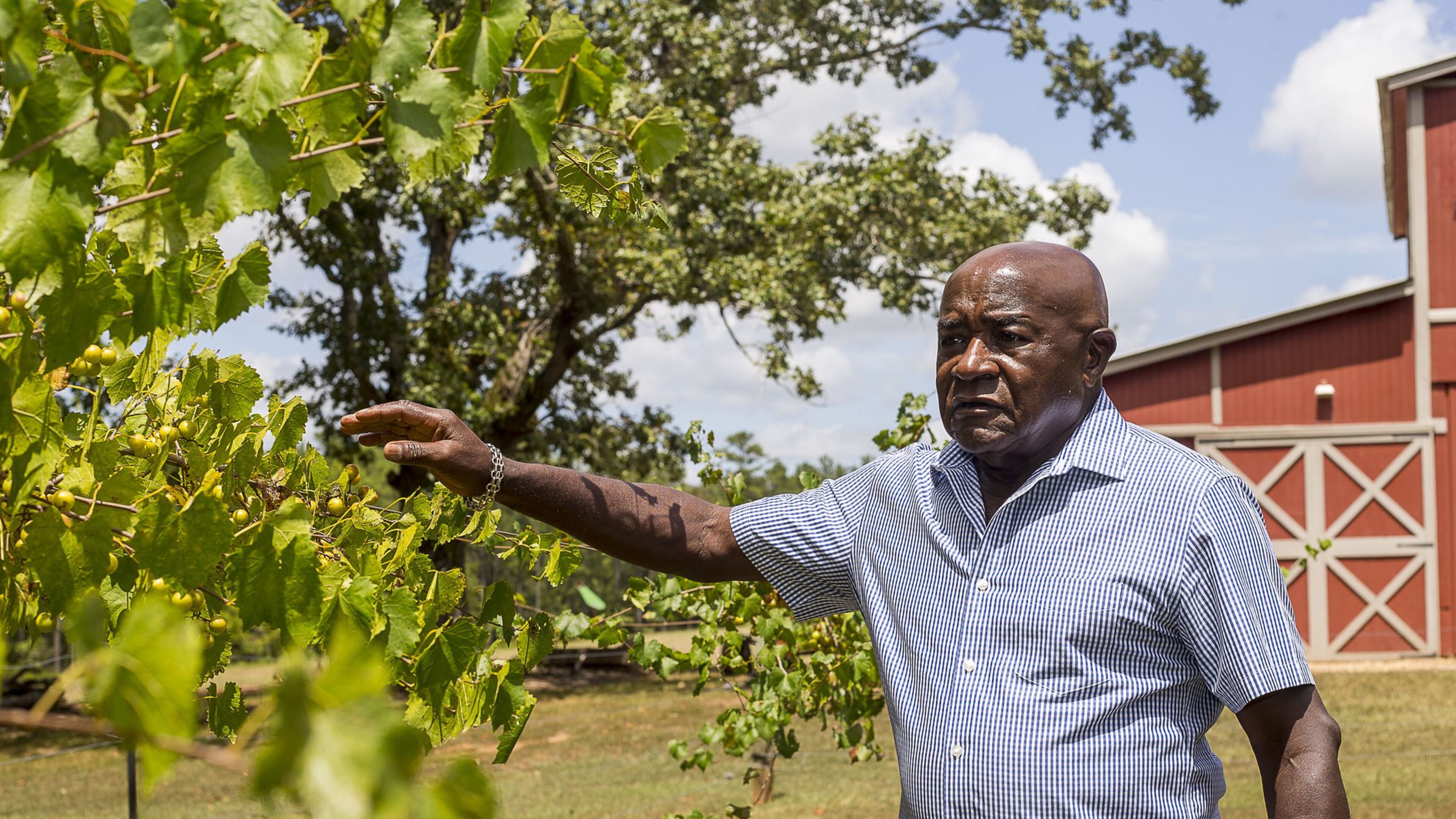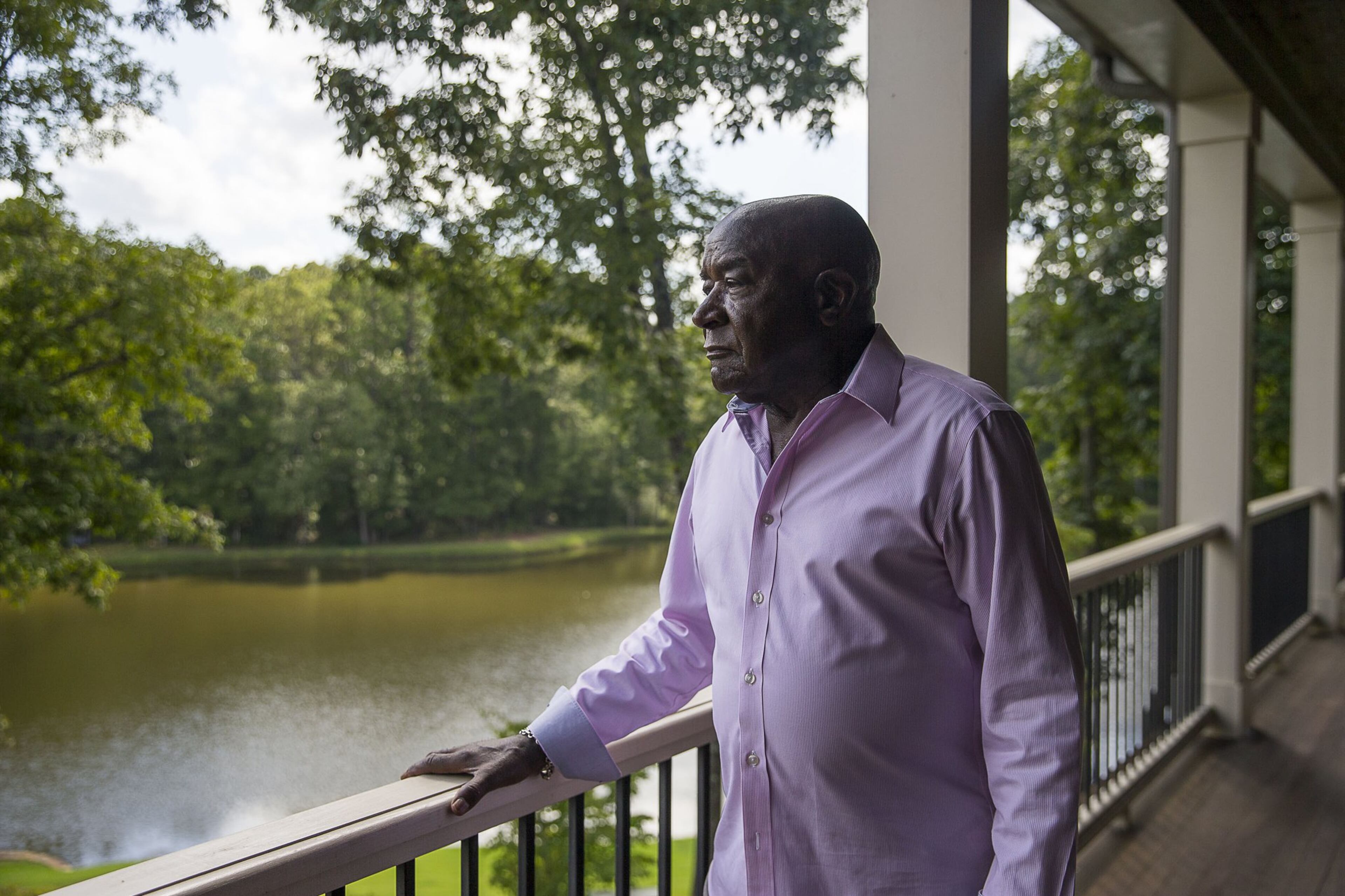Coke’s former go-to executive on race sees diversity gap at company

He was a sharecropper’s son who became Coca-Cola’s highest-ranking African American executive.
He ran an entire continent of business and was Coke’s go-to leader on race issues. Years before a landmark discrimination lawsuit shook the company, he warned unsuccessfully about bias, pay disparities and a shortage of blacks in top management.
Now, 16 years after retiring, Carl Ware is again cautioning Coke.
Ware, who just wrote a book about his life, said that when he was at Coke he hadn’t believed Atlanta’s most iconic company would even consider naming an African American or woman to be chief executive officer.
Even now, Ware said in an interview with The Atlanta Journal-Constitution, the company is behind in guiding blacks and women to senior leadership positions that would put them in line to be Coke’s president and CEO.
No woman or African American currently leads one of the four regional operating groups that would be the traditional succession path to Coke’s CEO suite, he said. (Coke said two of the four are Hispanic.) Ware held such a post in the 1990s as group president of Africa, the smallest of Coke’s regions at the time.
“I do not believe there is enough ownership within the company of diversity from the top,” said Ware, adding he remains in touch with African American executives at Coke.
Diversity remains an issue for many U.S. companies. Just three Fortune 500 chief executives are black, while the proportion of blacks in the overall U.S. population is more than 20 times greater. Women represent just over half the nation’s population, but hold only 33 of the 500 CEO posts of the nation’s biggest public companies, according to Fortune.
Coke CEO James Quincey has said diversity and inclusion help build social support for the company’s growth.
Coke lists 29 senior leaders, vice presidents or presidents of its big regions. Of those, 10 are women. Three are black, two are Asian and five are Hispanic, according to the company.
The company says leadership diversity has increased since 2000, when it agreed to a nearly $200 million settlement of a class-action discrimination lawsuit. About 2,000 current and former African American employees in the U.S. received payouts.
At the time, about 16% of Coke’s elected and appointed officers were women and 8% were what the company described as multicultural. A similar group of executives today is 36% women and 36% multicultural, according to the company.
“At The Coca-Cola Company, we strive to celebrate and embrace diversity,” Coke wrote in a statement to the AJC, adding it is “proud of the efforts we have made so far, but we always want to be making greater progress.”
Kathy Waller, an African American woman who retired in March as Coke’s chief financial officer, said she is convinced Quincey, the CEO, is committed to diversity.
She also said of Coke executives and diversity: “They have got a lot of work to do.”
The company made progress, but its diversity initiatives slipped as it cut expenses and jobs in recent years, Waller told the AJC. Some minority and women executives either lost their posts or chose to depart.
“Coke is at the stage of trying to regain the ground we lost,” she said. Over time, “the initiative needs to reinvent itself.”

Even as Ware calls for greater opportunity in corporate America, he suggests his own life shows how much can still be accomplished despite roadblocks.
His new book, “Portrait of an American Businessman: One Generation from Cotton Field to Boardroom,” details moments that touched on monumental shifts underway in Atlanta and the world during his lifetime.
Ware, now 75, grew up in Coweta County south of Atlanta. His parents scratched out a living with 12 kids who helped them work land owned by white farmers.
“I had parents who instilled in all of us that hard work, preparation, being close to God and humility would be strengths that would take you through life,” Ware said. “They helped me overcome seemingly impossible odds.”
Ware recalled accounts of local lynchings. He also wrote about a white sheriff who escorted his dad to vote at the Coweta County Courthouse in 1949, becoming the first African American to cast a ballot in the congressional district since Reconstruction.
Ware attended what was then Clark College in Atlanta in the early 1960s and took part in civil rights protests. He became a leader at the Atlanta Housing Authority and won a seat on the Atlanta City Council the same year Maynard Jackson became the first African American mayor of Atlanta. They and others pushed for changes, including requiring that city contracts include 25% participation by minority vendors.
He also was recruited by Coke’s then-chairman, J. Paul Austin, to work in the company’s governmental affairs unit. Ware said he was referred by one of his sisters, who was a maid for Austin.
Ware later led marketing aimed at minorities. He was assigned to deal with a boycott threat by activist Jesse Jackson, who pressed for African Americans to have a bigger presence in Coke operations. Ware recounted having life-size portraits of Confederate generals removed from Coke’s North Avenue headquarters just before a Jackson visit in the early 1980s.
Eventually, Ware was dispatched to figure out how to deal with massive pressure Coke faced from doing business in South Africa during apartheid. He crafted a compromise short of a complete pullout that eventually won the approval of anti-apartheid activist Desmond Tutu. (Tutu wrote the foreword to Ware’s book.) It took years before the plan was implemented.
Ware later led Coke’s operations throughout Africa. He wrote that he tried to bring Africans into leadership roles in the business there.
Coke insiders at the time say Ware was a respected leader, but he rose no further. He retired in 2003 as executive vice president of public affairs and administration.
Years ago, when he was still at Coke, he bought land near Newnan where his parents had once been sharecroppers. He built a handsome house and an infinity pool above a fishing pond once used by one of the plantation owners. He sold part of his 1,000-acre holding for a planned subdivision, Wimberly Estates, that carries his mother’s maiden name.
Former Coca-Cola senior executive Carl Ware will discuss his new book, “Portrait of an American Businessman: One Generation from Cotton Field to Boardroom,” at the AJC Decatur Book Festival. His session is Saturday at 11:15 a.m. at the Decatur Presbyterian Sanctuary at 205 Sycamore Street in Decatur.
MORE DETAILS
AJC Decatur Book Festival. 10 a.m.-6 p.m. Saturday. 11:30 a.m.-6 p.m. Sunday. Free. Various stages downtown Decatur. www.decaturbookfestival.com


